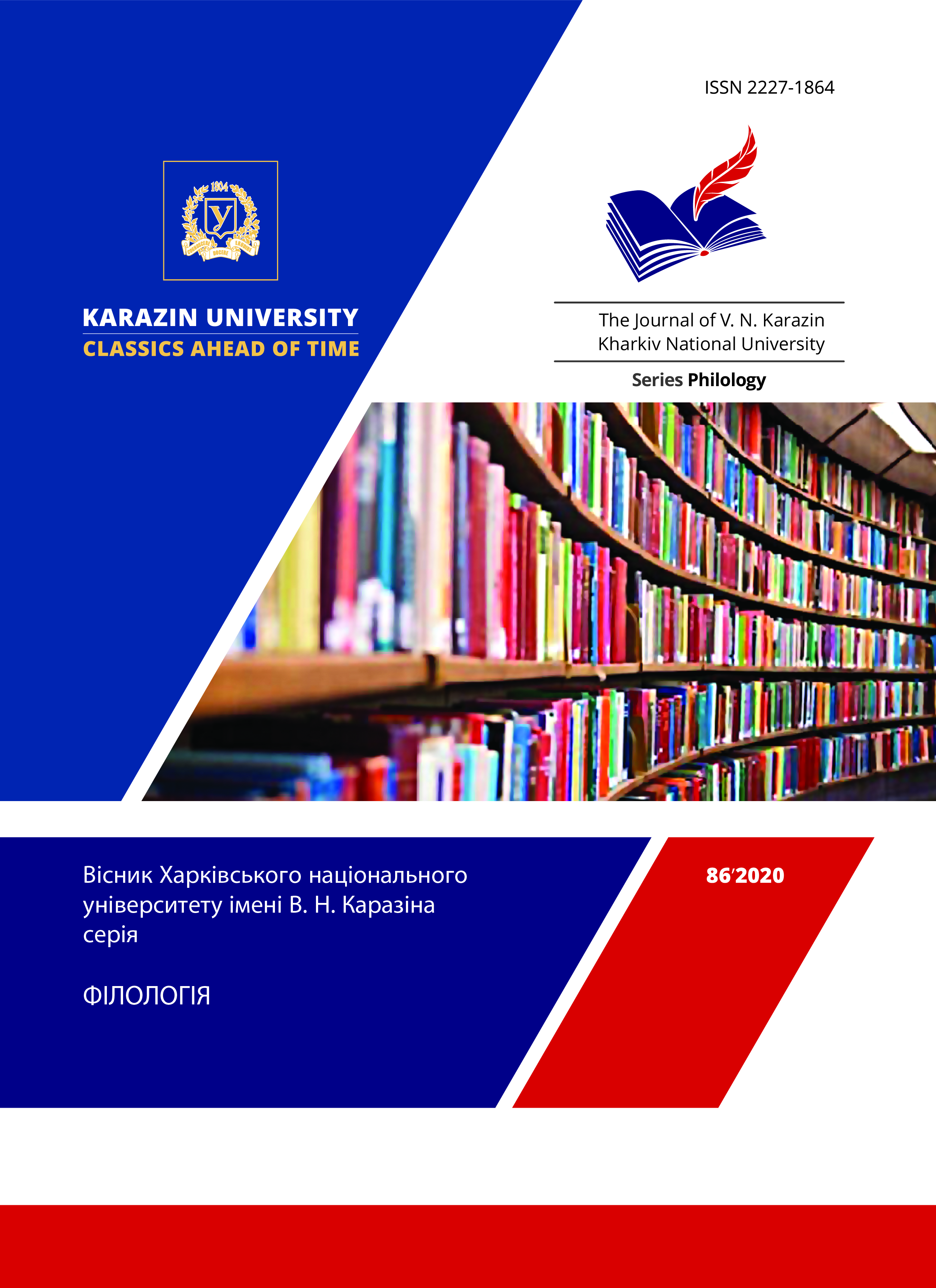The concept BEAUTY in the worldview of the Ukrainians of 12–40 years old (based on the data of a chain associative experiment)
Abstract
The article deals with the problem of the semantic content of the concept BEAUTY in the worldview of the Ukrainians of 12–40 years old. The aim of the research is to form and analise the associative fields of the lexemes that objectify the concept BEAUTY (краса, врода, красень, красуня, красивий, красива, гарний, гарна, вродливий, вродлива) and define its semantic content in the worldview of the Ukrainians of different age groups (teenagers (12–18 years old) and the young (19–40 years old), basing on the results of a chain associative experiment. As a result of an analysis of the semantic content of the received associative fields of the corresponding stimuli two main semantic groups have been singled out: people and nature. Within each of them several subgroups have been singled out. It is defined that the semantic group people outnumbers the group nature both in the quantity of the reactions and their variety. Judging by the quantity of the reactions of the group people that concern men and women, one can make a conclusion that beauty is thought primarily as a quality of girls / women (the reactions жінка, жінки, жіноча, дівчина, дівчини, дівоча, мама, мати, матір, матуся, бабуся, сестра ect.). The perception of beauty as an inherent trait of the closest relatives like mother, father, sister etc. is stable in the consciousness of the respondents of both age groups (the reactions мама, мати, батько, тато, матір, матуся), although the reactions of the older age group representatives are more varied and include such names of relatives as дружина, теща, дочка, син etc., which are not relevant for teenagers. It is established that the age differences in the perception of the analysed concept lie in more abstract representations of the young (19–40 years old) in contrast to more personalized representations of teenagers (12–18 years old). Most differences in the reactions of different age groups have to do with the group people whereas the perception of the beauty of nature is more universal. The qualitative-evaluative reactions show that beauty is perceived as a positively marked concept.
Downloads
References
Derkach, A. A. (Ed.). (2004). Akmelogija: Uchebnik Moscow: Izdatelstvo RAGS.
Anurina, I. (2015) Filosofske, psykholohichne, estetychne, etychne ta linhvokulturolohichne pidgruntia vidobrazhennia kontseptu "krasa" v brytanskii, nimetskii, ukrainskii i rosiiskii linhvokulturnykh spilnotakh. Teoretychna i dydaktychna filolohiia, 20, 108–118.
Goroshko, Ye. I. (2001). Integrativnaja model svobodnogo associativnogo jeksperimenta. Kharkiv, Moscow: RA–Karavella.
Dovhaniuk, E. V. (2017). Evoliutsiia kontseptu KRASA v anhlomovnomu dyskursi XIV–XXI stolit (Candidate of Philological Science’s thesis). Karazin Kharkiv National University. Kharkiv, Ukaraine. URL: http://dspace.univer.kharkov.ua/bitstream/123456789/13304/2/dis_Dovhaniuk.pdf
Kostruba, N. (2020). Kontsept «RELIHIIA» u svidomosti molodi: psykholinhvistychnyi analiz. Psycholinguistics, 27 (1), 164–180. https://doi.org/10.31470/2309-1797-2020-27-1-164-180
Krylova, S. A. (2019). Krasa liudyny v zhyttievykh praktykakh kultury. Dosvid sotsialnoi ta kulturnoi metaantropolohii i androhin-analizu: monohrafiia. Kyiv: KNT.
Matviienko, O. (2017) Krasa yak fenomen spryiniattia i vidobrazhennia svitu. Naukovyi visnyk. Seriia «Filosofiia», 48 (II), 23–33. https://doi.org/10.5281/zenodo.842663
Meshherjakova, Ju. V. (2004). Koncept KRASOTA v anglijskoj i russkoj lingvokulturah (Candidate of Philological Science’s thesis). Volgograd State Pedagogical University. Volgograd, Russia.
Shcherbachuk, L. F. (2011). Kontseptualizatsiia binarnoi opozytsii krasa / potvornist u sferi ukrainskoi frazeolohii. Uchenyie zapiski Tavricheskoho natsionalnoho universiteta im. V.I. Vernadskoho. Seriia «Filolohiia. Sotsialnyie kommunikatsii», 24 (63), 4 (2), 198–202.




